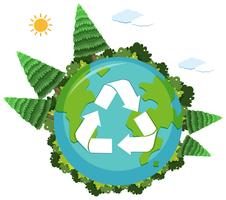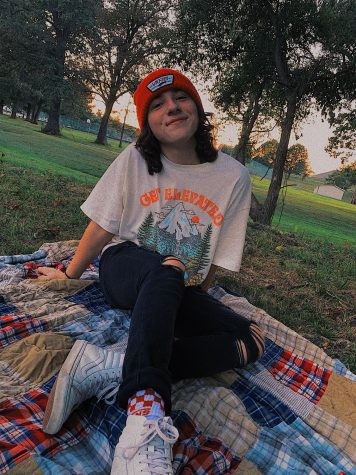Ms. Perry is Turning PHS Green

September 21, 2021
With the rise of the melting ice caps, recurring unnatural disasters, and pollution slowly suffocating the planet, caring about the environment can feel like a never ending burden. Many people will turn a blind eye since it is not affecting them directly.
However, this is not the case for the PHS Art teacher Pamela Perry. For the past few years, Ms. Perry has made it her mission to help reduce the ecological footprint of the school. Between using recycled materials and riding her bike to school on sunny days, Perry is always looking for ways to be sustainable. Perry also often blends in her care for the environment in her lessons.
Ms. Perry said, “A couple of years ago, before covid, our Art 2 class did a sculptural project. First we looked at the problem of trash in the oceans and around the world. We looked at Greta Thunberg and her standing up to get people to take notice. So we did sculptures using recycled materials and it was really cool seeing how students could come up with their own ideas and concerns for the environment. For example, I had one student who made a sea turtle that was trapped in all kinds of trash, she sculpted it all out of recycled materials, and then she had nets and trash bags and things that it was dragging behind it. It was a really powerful statement.”
In the same year, Perry made a project using bread bags to create woven drink coasters. Perry said, “I looked at how much plastic is flowing through our daily life here at school. We have no control over it. For example, whenever we have hamburgers or hot dogs, those bags are just tossed. It’s not anyone’s fault, but I thought how could I take action on this by making an unset statement by using these things.”
Perry states that she intends to double down on her approach to sustainable art and teaching. Perry said, “as long as I am getting some response from students. Because it’s now your problem, It’s a problem we all have but it’s up to the generation now to solve some of the problems we have generated. Generations before me, my generation, and generations after me have created a lot of things that are wonderful for modern living but when things go into the landfills we don’t see them. Or when things go into the ocean, we don’t see them until it’s a problem. So I want to as long as I can find ways to make it interesting and not a burden. I don’t wanna make people feel bad about it, I just want people to think.”

